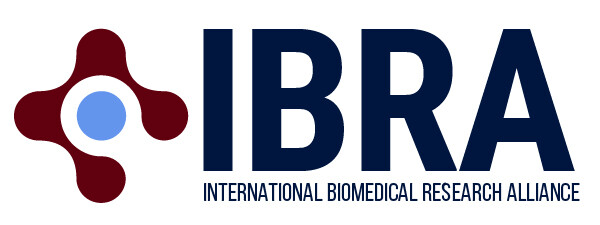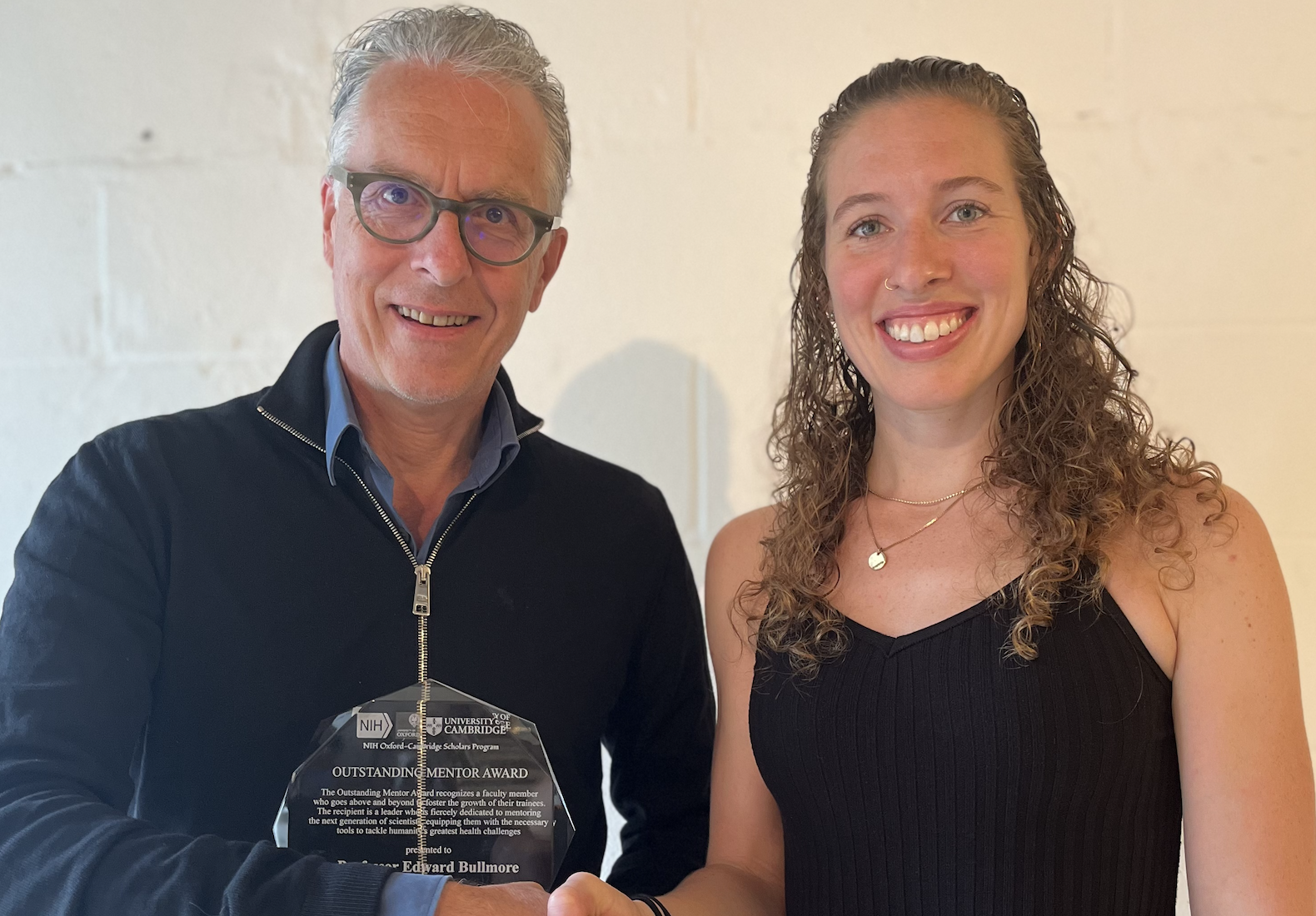Acclaimed American poet, educator, activist, and autobiographer, Maya Angelou, once said that in order to be an effective mentor, one must care. She went on to say that an effective mentor should care about what they know, and care about the person they are sharing it with.
A mentor is many different things on different days but is always endlessly interested in the quality of the learning experience and the well-being of their mentee. In short, they care.
It has been a long-standing tradition of the NIH Oxford-Cambridge Scholars Program to pause each year to recognize an outstanding mentor among the many faculty members who serve the Program across the NIH and at the Universities of Oxford and Cambridge. Nominations for this honor come from those who are the fortunate recipients of outstanding mentoring – the mentees.
Rachel Smith nominated Professor Ed Bullmore, of the University of Cambridge, stating “I am endlessly grateful for Ed taking a risk on me 2 years ago, when he agreed to work with me as a student though I had no experience in the field and big ideas with no solid foundation or background knowledge. As an extremely successful, end-of-career scientist he has every reason to fulfill the stereotype of the busy senior professor who is scarcely familiar with his students’ work. However, this could not be further from reality – Ed’s fierce dedication to mentorship is shown not just through the time and intellect he invests in improving his students’ science, but in getting to know us as people as well. When the other two PIs associated with our lab went on maternity leave around the same time, he intentionally cleared out time in his busy schedule to meet with all students in the group, including those whom he was not the primary supervisor for, one-on-one. I get genuinely excited for every one-on-one with Ed because I know talking with him will bring clarity and direction to my work, and I leave those meetings feeling better about life in general. He is funny, kind, and inspiring, and his guidance has helped me believe in myself and my science in a way I couldn’t have imagined even a year ago. I doubt he knows it, but Ed’s mentorship over the years has opened me up to a world of scientific possibilities that people from my background are not often exposed to, and I cannot overemphasize how grateful I am for that.”
Exceptional mentorship continues to be a cornerstone feature of the NIH Oxford-Cambridge Scholars Program since its inception in 2001.

